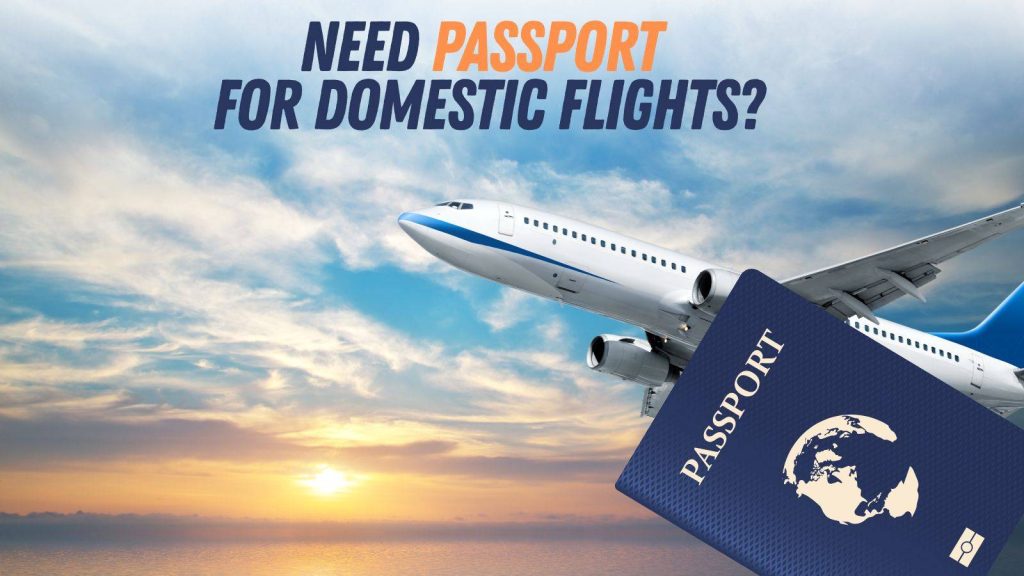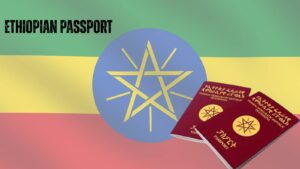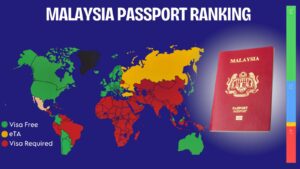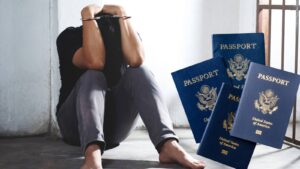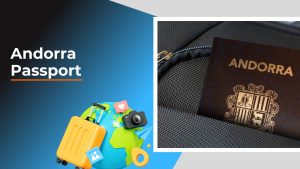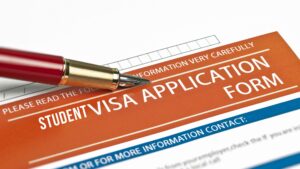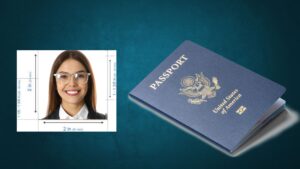Air travel has become an essential mode of transportation for millions of people around the world. Whether you are flying for business, vacation, or personal reasons, understanding the identification requirements for domestic flights is essential.
A common question that arises among travelers is: do we need passport for domestic flights? The answer varies depending on the country you are traveling in, the airline you are flying with, and the type of identification that is accepted.
Here is guide to help you avoid mistakes, ensure smooth boarding, and understand the requirements for domestic travel globally.
Understanding Domestic Flight Requirements
Domestic flights differ significantly from international flights, primarily in their documentation requirements. International travel almost always requires a passport and, in many cases, a visa. Domestic flights, however, are usually more flexible, allowing travelers to use locally issued government IDs.
Many travelers mistakenly assume that a passport is always required, leading to unnecessary stress, last-minute rushes, or even denied boarding. Understanding the correct documents for domestic flights in your country and airline-specific rules is essential.
Having clarity about domestic ID requirements can prevent travelers from over-preparing or carrying unnecessary documents, saving time, money, and hassle. This is especially important for frequent flyers, business travelers, and families with children.
Do You Need a Passport for Domestic Flights?
The direct answer to do we need passport for domestic flights is: generally, no. Domestic flights typically remain within the same country, so airlines accept a range of government-issued IDs for identity verification.
Country-Specific Examples:
- United States: Adults aged 18 and above need a valid government-issued photo ID such as a driver’s license, state ID, or military ID. A passport is optional but may be useful if you are connecting to an international flight soon after.
- United Kingdom: Passengers can use passports, driver’s licenses, or national ID cards. Some airlines may also accept other forms of government-issued photo ID such as biometric residence permits.
- Canada: Provincial or territorial ID cards, driver’s licenses, and passports are accepted. For children, school IDs or birth certificates may also be required.
- Australia: Domestic travelers can present a passport or a government-issued photo ID like a driver’s license. Student IDs may be accepted for minors in some regions.
- European Union: Depending on the country, domestic flights accept passports, national ID cards, or driving licenses. It is always wise to confirm with your airline, as certain low-cost carriers may have additional requirements.
Although a passport is usually not mandatory, carrying one can be helpful in emergencies, for cross-border regional travel, or if you plan to fly internationally soon after your domestic journey.
Accepted Forms of Identification for Domestic Travel Worldwide
Airlines worldwide require government-issued photo identification for boarding domestic flights. While a passport is universally recognized, other forms of identification are often more practical for everyday travel.
Commonly Accepted IDs:
- Passport: Accepted globally and recognized by all airlines; useful for travelers who may have connecting international flights or require identity verification in multiple scenarios.
- Driver’s License or Driving Permit: The most common form of ID for adults, accepted in most countries for domestic travel. Ensure it is current and includes a photo.
- National Identity Card: Useful in countries with official national IDs, particularly in Europe, Asia, and parts of Africa. Often the simplest form of ID for domestic air travel.
- Military or Government Employee ID: Frequently accepted for government personnel or employees traveling officially. Some airlines may require additional documentation or travel authorization.
- Student ID: Accepted for minors or young adults in certain regions, particularly if accompanied by a birth certificate or school enrollment proof.
- Other Government-Issued IDs: Depending on local laws, voter IDs, provincial cards, or official service IDs may also be valid. Always verify with the airline before flying.
Having multiple valid forms of identification can save you from potential delays and provide backup if your primary ID is misplaced or unreadable.
Special IDs for Minors and Children
Children and minors often require different forms of identification depending on local laws and airline regulations.
- Birth Certificate: Commonly used for infants and very young children. Airlines may require the original or a certified copy.
- School ID: Accepted for older children and teenagers in many countries. Sometimes it is combined with a letter from the school confirming enrollment.
- Passport: Optional, but highly recommended if international travel may follow a domestic flight. It can simplify verification, especially for cross-border flights within regional zones.
Parents or guardians should always check airline policies in advance. Some airlines may require notarized consent forms or additional proof of guardianship for minors traveling with one parent or another adult. Preparing documents in advance can prevent last-minute complications.
Key Boarding Requirements and Security Checks
Even domestic flights have strict security protocols. Identity verification happens at multiple stages: check-in, security screening, and boarding.
- Name Matching: The name on your ID must exactly match the name on your ticket. Even minor differences, such as abbreviations or missing middle names, may prevent boarding.
- Digital IDs: Some countries now accept digital IDs via mobile apps or government verification platforms, offering faster check-in processes.
- Accessibility: Keep IDs easily accessible, not buried in bags, to avoid delays at multiple checkpoints.
- Special Screenings: Passengers traveling with minors, elderly passengers, or individuals with special needs may undergo additional checks.
Being aware of these requirements and preparing in advance helps ensure a smooth boarding experience and reduces stress.
Common Mistakes to Avoid
Travelers often encounter problems due to simple, avoidable mistakes. Being proactive can save both time and stress.
- Using Expired or Invalid IDs: Always verify the expiration date and replace outdated identification to avoid denied boarding.
- Mismatch Between Ticket and ID Names: Ensure names match perfectly. Even small spelling errors can result in significant delays.
- Not Carrying Required Documents for Children: Airlines have strict rules for minors. Keep birth certificates, school IDs, or passports ready.
- Assuming a Passport is Required: While passports are accepted, they are not necessary for domestic flights. Over-relying on a passport without understanding local rules may cause confusion.
- Overlooking Airline-Specific Policies: Some budget airlines have unique rules for accepted IDs; always verify with the airline before departure.
Tips for a Smooth Domestic Flight
To ensure a hassle-free domestic flight, consider the following:
- Verify Identification Requirements: Check both your airline’s website and your country’s official travel guidelines.
- Ensure Consistency: Ticket information and identification should match exactly.
- Use Digital IDs Where Accepted: Mobile apps and government platforms are increasingly recognized for verification.
- Arrive Early: Domestic flights still require sufficient time for check-in, security screening, and boarding.
- Prepare Documentation for Minors: Keep birth certificates, school IDs, or other required documents ready.
- Stay Updated: Regulations may change due to security requirements or airline-specific rules.
By following these steps, travelers can reduce stress, avoid delays, and enjoy a more organized travel experience.
When a Passport Can Be Helpful
Even if a passport is not required, carrying one provides several advantages:
- Universal Recognition: Accepted as valid ID in almost every country.
- Emergency Travel: Useful if unexpected international flights arise during your domestic journey.
- Hotel or Service Verification: Some hotels, car rentals, and government services accept passports for identity verification.
- Digital Integration: Programs like mobile ID apps or Digi Yatra in India can link easily with passports for quicker check-ins.
Having a passport as a backup ensures preparedness for unforeseen circumstances and multi-purpose identification.
By understanding local rules and airline policies, travelers can avoid common mistakes, prevent delays, and enjoy a smooth domestic flight experience anywhere in the world. Proper preparation ensures your journey is safe, efficient, and stress-free.
